The Benefits of Using a VPN For Online Gaming & The 6 Best VPNs in 2022

Online gaming has become ubiquitous. According to Digital Information World, it’s estimated that there will be 2.75 billion gamers around the world by 2021.
Most people who enjoy online gaming don’t give much thought to security. The general assumption is that so long as a game is popular, it’s safe to play. That isn’t the case, and that’s why VPNs for gaming are becoming a necessity.
Whether you’re into first-person shooter games, sports or action adventure, every time you get into your game you are online. This leaves you open to intrusions.
The threats are present in both mobile and PC gaming. So long as you connect to the internet to play a game, there is a chance that you can be hacked. That is why you need a VPN for gaming.
In this post we’ll briefly look at what is a VPN, benefits of VPNs for gaming, drawbacks as well as the best VPNs for gaming.
Table of Contents
What is a VPN?
VPN stands for virtual private network. A VPN is a way of connecting to the internet anonymously. It encrypts your data and allocates you a different IP address.
When you install VPN software on your PC or phone, no one can see where you are, what you’re doing or when you do it. If hackers and other malicious online entities can’t see you, they cannot attack you.
This is not all that a VPN does. It gives you access to geo-restricted content and it can help prevent throttling by your ISP.
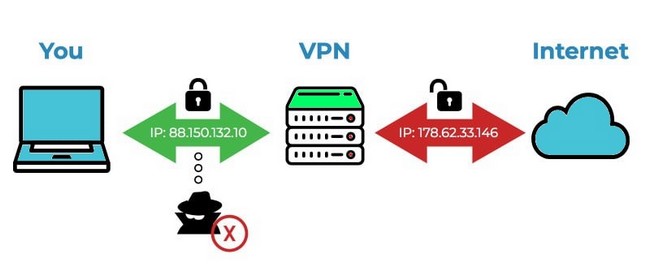
What Are The Benefits of Using a VPN For Gaming?
A VPN encrypts your data and masks your IP address, making you invisible to others online. This concept may sound a little strange to someone who isn’t familiar with this sort of software, so we’ll look at the individual benefits of VPNs.
A VPN Keeps You Safe From S.W.A.Ting
Experienced fans of multi-player games know all about swatting. It’s when another player gets angry or obsessed with you and decides to hurt you.
As you participate in multi-player games you’ll meet other people, and occasionally there are those who aren’t there just for the game. They can track IP addresses of other players in the game. If they can find your IP address it means your phone or PC is vulnerable to an attack.
Even worse, an IP address points directly to your location. If a player can get your IP address, they can track down where you live or work and pay you a visit.
Who knows how this kind of visit could end? In rare cases, malicious players have called in bomb threats on other players, fake hostage situations or reported emergencies that didn’t exist. This triggered a visit from the authorities, hence the term swatting.
Today, swatting can be described as unwelcome attention from a player who has tracked down your IP address or physical location.
VPNs for gaming can prevent this from happening. When you have VPN software installed, each time you go online your data is rerouted through the VPN’s servers. Anyone looking for your IP address will see the IP address of the server you’ve been rerouted through.
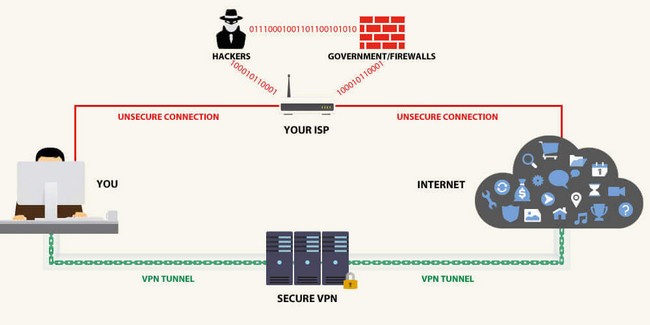
In other words, no one can see your real IP address, so they cannot use it to trace your physical location.
You Can Avoid DDoS Attacks
DDoS stands for Distributed Denial of Service. It happens when a malicious entity disables a computer, server or network by flooding it with internet traffic.
When you hear of a server or system being brought down by hackers, it usually means that it’s undergoing a DDoS attack.
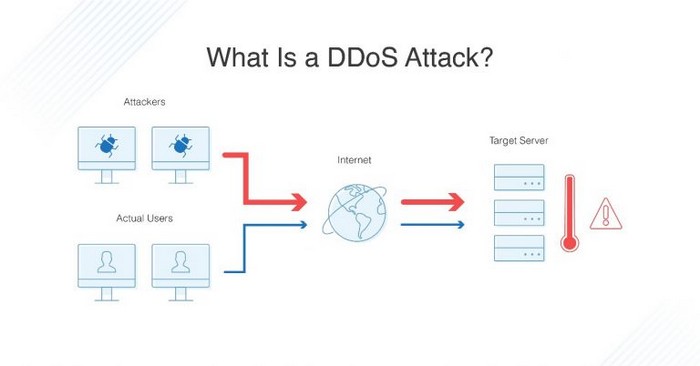
DDoS attacks are powerful and shouldn’t be taken lightly. They can cripple a system for a long time.
Think of them like traffic on the road. Imagine if someone decided to close all other roads in town and direct all vehicles to where you are. You’ll be stuck because you cannot move. Anyone whose trying to reach you won’t succeed either.
While these attacks are often targeted at larger organizations, the gaming industry is particularly prone to them because most gamers go online without the right security software in place.
If you are subjected to a DDoS attack, the hacker may demand money from you before they release your system back to you.
The best VPNs for gaming make it very difficult to become a victim of such an attack. Since no one can see your IP address they cannot flood it with traffic.
Game Safely on Public Wi-Fi
How many times do you connect to a public Wi-Fi network to enjoy a little gaming? Each time you are on such a connection you are open to attack.
The data on most of these networks is unencrypted, which means that anyone can see it.
There are hackers who specialize in collecting user information and private data from open Wi-Fi networks. When you go online, they can see each site you visit and the data you enter, and they can collect it for their own uses.
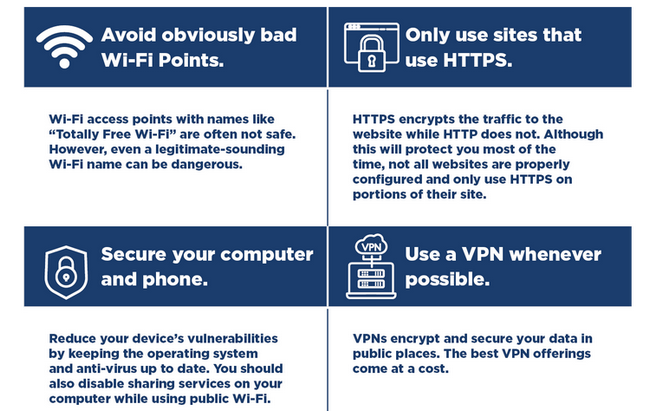
There are also man-in-the-middle attacks which are just as dangerous. These happen when a hacker intercepts data between your computer and the internet. They are common and they can happen anywhere, any time.
Malware attacks are also common on public Wi-Fi. Every time you go online, a hacker can install malicious software on your device.
How can you prevent all these threats on public Wi-Fi?
By using VPNs for gaming. A VPN will hide your IP address so you won’t be visible online. In addition to that they encrypt your data so that even if it’s intercepted it’s meaningless.
A Gaming VPN Will Prevent Bandwidth Throttling
Your ISP can throttle your bandwidth for whatever reason they see fit. During peak hours they can slow your speeds down to ensure that all their clients are able to get online.
Some ISPs throttle bandwidth if they detect a particular kind of activity from your IP address. It can be gaming, streaming, torrenting or file sharing. Some look at the amount of data transfer over a given time and then cut you off or slow you down.
Some games use a lot of bandwidth. Call of Duty Black Ops consumes an average of 80MB per hour. Destiny 2 goes as high as 300MB per hour. If you play for just 4 or 5 hours a day, it builds up, and your ISP can end up throttling your bandwidth.
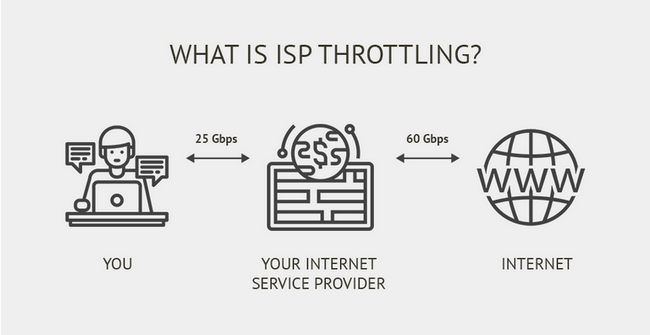
You can stop this from happening with a gaming VPN. The data to and from your computer is encrypted, so they cannot see what you’re doing. Since your IP address displays as the IP address of the VPN server you’re using, they cannot tell who you are or where you are. They can’t throttle your bandwidth.
Avoid Geoblocks
A geoblock is when a provider restricts content based on location. The most popular games have servers in different regions to ensure players have access from different parts of the world. Each time you log in, they can see your IP address and pinpoint your location.
When game makers release games they often limit them to certain regions for the first few weeks or months. You may find that you have access only if you are in the US or Canada.
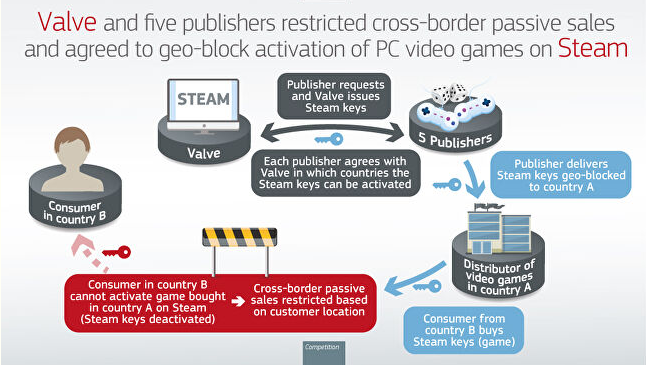
Everyone else who has an IP address that falls outside these 2 regions will not be able to play the game. You can stop this from happening by investing in a VPN for gaming.
A VPN masks your IP address, so the gaming servers cannot see your location. If they cannot see that you’re in a restricted region they cannot stop you accessing games.
You’ll be able to enjoy any new game releases that are available only in certain regions.
Access Banned Games
Many countries ban certain games because they don’t consider the content suitable. It happens in places you wouldn’t expect. In the UK for example, some games are banned because they are considered to have gratuitous violence and sex.
In Germany you cannot play games that promote or have references to Nazis.
Brazil doesn’t allow games where you’re allowed to shoot people, while in Venezuela any games promoting violence are banned.
Australia has a long list of games that are banned because they portray nudity, violence and other activities that are considered extreme.
You can get around these restrictions by installing a gaming VPN. All data to and from your computer or mobile device will be encrypted, so no one can see what game you’re playing or even whether you’re playing an online game.
Minimize Lags & Ping Times
If you’re frustrated by lags and long ping times you can improve your game by installing a VPN. The reason for these inconveniences is the amount of time it takes to transfer data from your device to a server and vice versa.
A VPN data packet takes a more direct route than a data packet from your ISP. Installing one will give your gameplay the boost it needs.
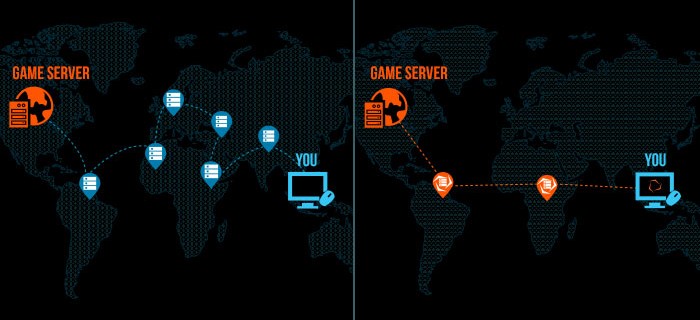
You Can Connect Multiple Devices
The best VPNs allow users to connect through routers. When you install VPN software on a router any device that’s connected through that router enjoys anonymity and protection.
If you install a router at home or in your office and then add VPN software to it you can connect all your devices to it at no additional cost.
Drawbacks of VPNs For Gaming
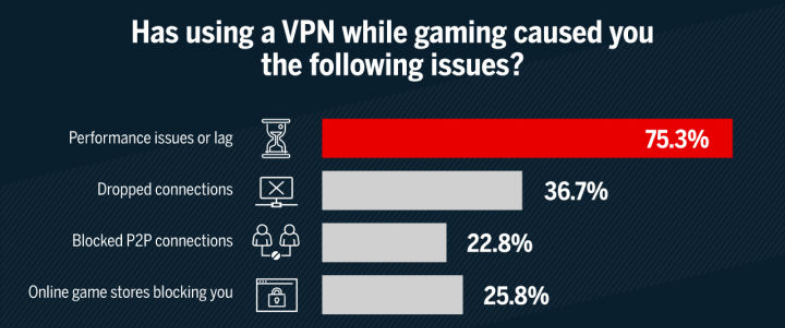
It’s important to know the drawbacks of any software you plan to install. For gaming VPNs, here are some of the common disadvantages. They will not affect the performance of the VPN or your gameplay, but you should know them all the same.
- VPNs are banned in some countries. There’s a handful of countries around the world that don’t allow the use of a VPN. They include Russia and China, and if authorities catch on that you’re using one you may face severe penalties.
- Most VPNs promise not to log user data but this is easier said than done. For operational reasons VPN companies need to collect some data. What makes a difference is where the VPN is located (is it in a jurisdiction where it can be compelled to provide client details?). It is also important that the VPN company destroys the data it collects frequently. That way, if asked to provide user logs they have nothing to give authorities.
- A VPN can slow down your connection speed. To make sure this doesn’t happen choose a VPN with high speeds and many servers. Lots of servers means that there’s no congestion of connections, and clients can enjoy relatively fast speeds wherever they are.
- Some consoles aren’t compatible with some VPNs. You can get around this particular problem by installing a router, installing a VPN on the router and then connecting your console. Alternatively, check whether the VPN you have in mind works for your console.
How to Choose a VPN for Gaming
Not all VPNs are good for gaming. While some may be excellent at offering general protection for your device, they may so a lousy job as gaming VPNs. Here’s what you need to take into account when you are choosing a VPN for gameplay:
- Speed
All VPNs slow down your speed to some degree but some less than others. The secret to choosing the best VPN for gaming is to find one with very high speeds so that even if it slows down your connection, it’s still relatively fast.

- Compatibility
We mentioned that one of the drawbacks of VPNs is that they may not always be compatible with game consoles. When you are choosing a gaming VPN it’s important to check whether it will work with your existing hardware. Your other option would be to use a router, but remember that not all routers can accommodate VPNs.
- Top-notch security protocols
The best VPNs use AES-256 encryption which is the best there is. Check whether the VPN has a zero-logs policy. Most will collect some data, but how much and how often they destroy the data is important.
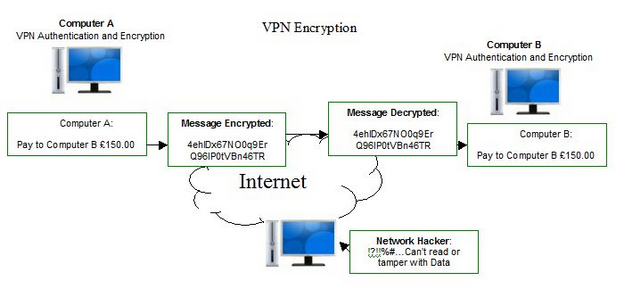
- Avoid VPNs with data caps
Data caps means that after surpassing a certain limit of data transfer you’re cut off from the net. Most VPNs have eliminated such caps but there a few that implement them. Free gaming VPNs are notorious for data caps, so steer clear of them.
- The more servers, the better
If a VPN has many servers that are spread out in different locations you tend to get higher speeds and you can connect from anywhere in the world. As you are looking for a VPN for gaming check how many servers it has and where they are located. Proximity to a server matters – the closer you are to one, the faster you can connect.
- Choose one that supports P2P
If you plan to take part in multi-player games choose a VPN that supports peer-to-peer connections.
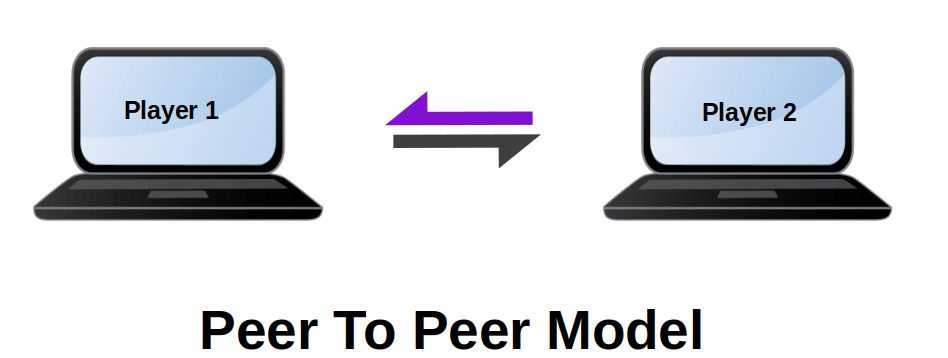
- Low ping rates
A low ping rate is preferable because it makes for shorter data transfer times which means that you can play faster. Check the ping rate of the gaming VPN you have in mind.
What Are The Best VPNs For Gaming?
Below is a table that shows the best VPNs for gaming, their features and price. You can get more information about each of these VPNs by clicking the link.
| VPN | High Speeds | Low Ping Rate | P2P Support | Device/Console Compatibility | Security Protocol | Data Caps | No. Of Servers | Price (Monthly) |
| ExpressVPN | ✓ | ✓ | ✓ | ✓ | AES-256 | None | 3,000+ | $12.95 |
| Surfshark | ✓ | ✓ | ✓ | ✓ | AES-256 | None | 3,200+ | $12.95 |
| CyberGhost | ✓ | ✓ | ✓ | ✓ | AES-256 | None | 6,000+ | $12.99 |
| NordVPN | ✓ | ✓ | ✓ | ✓ | AES-256-GCM | None | 5,500+ | $11.95 |
| Private Internet Access | ✓ | ✓ | ✓ | ✓ | AES-128-GCM, AES-256-CBC | None | 35,000+ | $9.95 |
| VyprVPN | ✓ | ✓ | ✓ | ✓ | AES-256 | None | 700+ | $12.95 |
Conclusion
There are numerous reasons why VPNs for gaming are important. They provide peace of mind whenever you’re playing. You don’t have to worry about unauthorized access on your devices because no one can see your data or where you are.
Gaming VPNs also allow you to overcome geo-restrictions and you can see new game releases as soon as they come to market.
While there are some drawbacks to VPNs for gaming, they shouldn’t discourage you from securing your devices as you game. You can overcome them by making sure that you choose the right VPN software. It should be compatible with your console, have high speeds and use the right security protocols.


